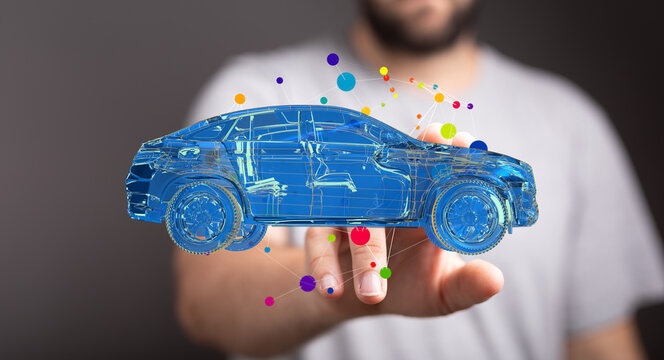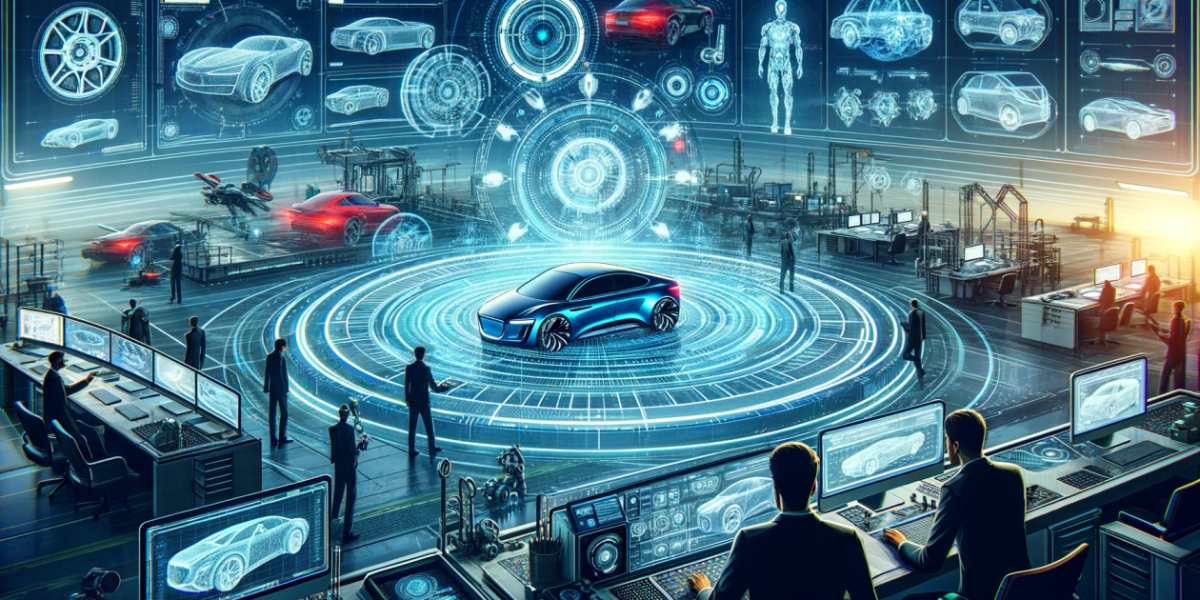One of the most transformative applications is predictive maintenance powered by AI. By harnessing advanced analytics, machine learning models, and real-time data, car manufacturers can anticipate equipment failures before they occur, minimize downtime, and optimize the performance of both production assets and finished vehicles.
Why Predictive Maintenance Matters in Automotive Manufacturing
Car manufacturing is a complex ecosystem, involving robotics, assembly lines, supply chains, and quality assurance systems. Even minor equipment failures can disrupt production, create bottlenecks, and increase operational costs. Traditionally, manufacturers relied on scheduled maintenance routines or reactive repairs. These approaches, while useful, often lead to unnecessary service intervals, wasted resources, or unexpected breakdowns.
AI-driven predictive maintenance changes the equation. By analyzing vast datasets from sensors, IoT devices, and historical maintenance logs, AI can detect patterns that indicate potential equipment failures. This proactive approach ensures that maintenance occurs exactly when needed, reducing costs while increasing efficiency and reliability.
The Role of AI in Predictive Maintenance
Artificial intelligence introduces intelligence and foresight into traditional maintenance processes. Here’s how it works in the automotive manufacturing context:
Real-Time Data Monitoring
IoT sensors embedded across manufacturing equipment constantly monitor variables such as temperature, vibration, pressure, and usage cycles. AI algorithms process this data in real time, identifying anomalies that could indicate wear and tear or imminent failure.
Machine Learning Models
Machine learning models are trained on historical performance data and known failure cases. These models can predict failure timelines, estimate remaining useful life (RUL) of parts, and provide actionable recommendations for maintenance.
Automated Alerts and Workflows
When AI detects anomalies, it triggers automated workflows—such as generating maintenance tickets, notifying technicians, or even pausing specific machinery to prevent damage. This reduces human error and ensures faster intervention.
Integration with Digital Twins
Digital twins—virtual replicas of machines—combined with AI create powerful simulations. Engineers can test various maintenance strategies virtually, optimize schedules, and predict how interventions will impact long-term performance.
Benefits of AI-Driven Predictive Maintenance for Car Manufacturers
The advantages extend far beyond reduced downtime.
Cost Savings: By preventing unexpected failures, manufacturers save on emergency repairs, spare parts, and labor. Predictive scheduling also reduces unnecessary servicing.
Increased Productivity: Production lines operate with fewer interruptions, improving throughput and delivery times.
Extended Equipment Lifespan: Early detection of wear enables interventions that prolong the life of expensive assets like robotic arms or CNC machines.
Enhanced Safety: Identifying hazards before breakdowns occur creates safer working environments for employees.
Sustainability: Efficient maintenance reduces waste, energy consumption, and resource use, supporting green manufacturing initiatives.
Applications in Automotive Manufacturing
Assembly Line Equipment
Robotic arms, conveyors, and welding machines are essential to automotive production. AI-driven predictive maintenance ensures these systems run smoothly, avoiding costly shutdowns caused by equipment malfunctions.
Paint Shops and Coating Systems
Paint booths and coating equipment must operate under precise conditions. AI monitoring helps prevent disruptions due to clogged nozzles, overheating, or irregular spraying, ensuring consistent quality and reduced rework.
CNC Machines and Tooling
AI-powered predictive analytics monitors vibrations, spindle speeds, and cutting forces in CNC machines. This enables timely tool replacements and reduces the risk of catastrophic failures.

Vehicle Quality Testing
Even post-assembly, AI-driven predictive maintenance supports end-of-line testing equipment. Early fault detection ensures reliable inspections, reducing defects before cars reach customers.
Challenges and Considerations
While the benefits are compelling, implementing AI-driven predictive maintenance requires careful planning:
Data Quality and Volume: AI systems rely on large volumes of high-quality data. Poorly calibrated sensors or incomplete logs can reduce prediction accuracy.
Integration Complexity: Linking predictive systems with legacy manufacturing equipment and ERP platforms can be technically challenging.
Skilled Workforce: Maintenance teams must be trained to interpret AI insights and act effectively.
Cybersecurity: As factories become more connected, protecting sensitive data from cyber threats is essential.
Overcoming these challenges requires strategic investment in digital transformation, robust infrastructure, and the right expertise.
The Future of Predictive Maintenance in Automotive
Looking ahead, predictive maintenance will become even more advanced with:
AI-Powered Self-Healing Systems: Equipment that can automatically adjust its parameters in response to AI insights without human intervention.
Cloud and Edge Computing: Faster processing at the edge will allow instant analysis of sensor data, reducing latency.
Cross-Plant Intelligence: Manufacturers will pool data across global facilities, enabling AI to learn from patterns at scale.
AI for Vehicles in Use: Beyond factories, predictive maintenance will increasingly be applied to vehicles themselves—anticipating component failures and alerting drivers or service centers proactively.
Partnering for Success in Predictive Maintenance
Implementing AI-driven predictive maintenance in car manufacturing requires not just advanced technology but also deep domain expertise. Collaborating with specialists ensures the right balance between data strategy, AI models, and industrial operations. Companies aiming to modernize their automotive production can explore tailored services at https://www.avenga.com/automotive-engineering-services/ from Avenga – Global Technology Partner, leveraging end-to-end support to deploy AI-powered solutions that drive both efficiency and innovation.
AI-driven predictive maintenance is redefining automotive manufacturing. By combining real-time monitoring, machine learning, and automation, car makers can reduce costs, extend equipment lifespan, and optimize productivity. As the industry races toward smarter factories and connected vehicles, predictive maintenance will be one of the pillars ensuring resilience, competitiveness, and long-term success.









